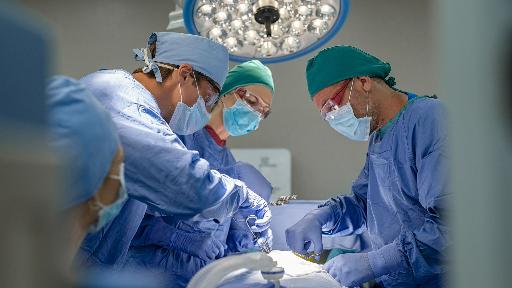The Texas Heart Institute, on Wednesday, February 27, announced the successful results of the largest cell therapy trial to date in patients with chronic heart failure due to low ejection fraction. The therapy improved patients' heart pumping ability, as measured by ejection fraction, and reduced their risk of heart attack or stroke, especially for patients who have high levels of inflammation.
The clinical trial through a special immunomodulatory cell type called mesenchymal precursor cells (MPC) developed by Mesoblast Inc. the potential for the first time to address a major contributor to heart failure—inflammation.

The study called DREAM-HF (Double-Blind Randomized Assessment of Clinical Events With Allogeneic Mesenchymal Precursor Cells in Heart Failure) is in its phase 3 trial and has been performed at 51 sites in 565 patients with chronic heart failure, who were also on standard-of-care heart failure treatment.
Participants in the trial were on full guideline-recommended drug therapy for heart failure. Via a mean follow-up of 30 months, the treatment was designed to examine the effects of MPC comprising immunoselected, culture-expanded mesenchymal precursor cells (MPCs), on the number of hospitalizations and major adverse cardiovascular events in heart failure.
"The results of DREAM-HF appear to work by reducing inflammation, increasing microvascular flow, and strengthening the heart muscle. Locally, in the heart, the MPCs can protect cardiac muscle cells from dying and can improve blood flow and energetics. In large blood vessels throughout the body, the reduced inflammation resulting from the activation of MPCs may decrease plaque instability, which is what leads to heart attacks and strokes. The cells seem to have a systemic immune-modulatory and anti-inflammatory effect," said Dr. Emerson C. Perin, MD, Ph.D., FACC, Lead author of the study and Medical Director at The Texas Heart Institute.
Results suggested that the effect of the cell therapy was synergistic with and additive to state-of-the-art heart failure medications. Furthermore, the results which provided long-term improvements in outcomes for patients with chronic heart failure due to low ejection fraction and poor pump function are an important advancement in the field of cell therapy for cardiovascular disease.
Texas Heart Institute prides the achievement following two decades of rigorous development of the said therapy program. They have pioneered the development of cellular therapies for the heart and continue to lead the world in a such breakthrough projects.

"For millions of people in the United States over the age of 20 who suffer from heart failure, MPC therapy could change the future of cardiovascular care for patients with heart failure due to inflammation," said Dr. Joseph G. Rogers, CEO and President of The Texas Heart Institute and advanced heart failure specialist.
Chronic Heart failure and other cardiovascular diseases continue to be the leading cause of death in the United States affecting more than 6 million Americans as per the Center for Disease Control and Prevention (CDC) report in 2021.
To read the story in full, click here.
With over 2,000+ organizations across the United States and the world, you can reach out to the right partners and do your business on a roll.
Looking for Cardiovascular professionals, center directors, or distributors? Get to know our members and start connecting with them by joining our community today!